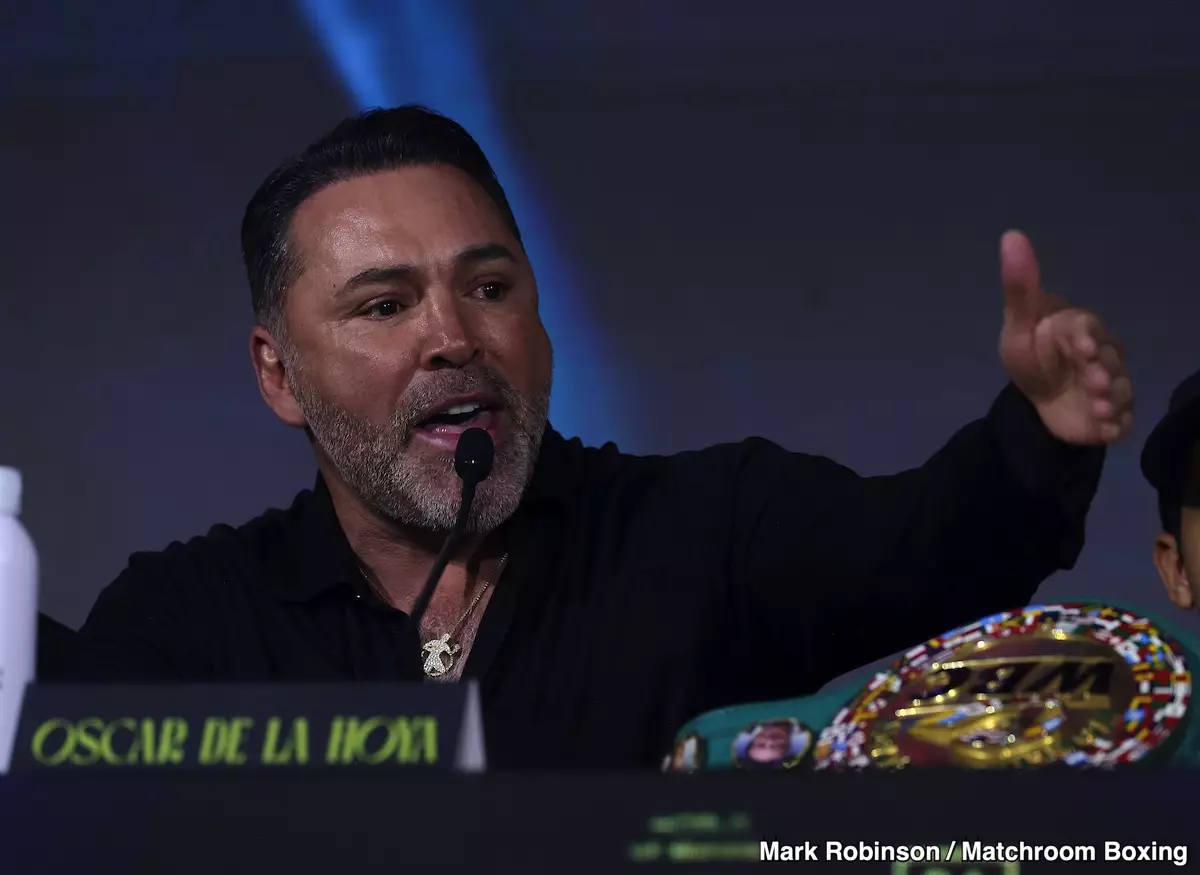As excitement brews in the boxing world, anticipation for the forthcoming press conference announcing Manny Pacquiao’s fight against WBC welterweight champion Mario Barrios is reaching a fever pitch. This fight, often whispered about among fans yet labeled the “worst-kept secret in boxing,” marks a significant chapter in Pacquiao’s illustrious but tumultuous career. With a history that stretches back decades, the 46-year-old icon is set to step back into the ring, and not without controversy. What drives a legend like Pacquiao to lace up his gloves once more? That question is pivotal and nuanced.
A Legacy Under Scrutiny
Legendary boxer Oscar De La Hoya recently added his voice to this ongoing dialogue, posing a pointed question: “Why?” De La Hoya’s inquiry transcends mere curiosity—it digs deep into the psyche of a champion. His own experiences in the ring colored his perspective, revealing a nuanced understanding of what compels fighters to return after long stretches away from the spotlight. For Pacquiao, whose skill and tenacity have captivated audiences around the globe, the question bears both gravity and complexity.
While De La Hoya’s optimistic view suggests that Pacquiao’s return is fueled by a pure love of the sport and the desire to entertain fans, the reality may be far more complicated. What if Pacquiao, often hailed as a “warrior,” is actually wrestling with deeper financial motivations? This is not to cast a shadow on his passion for boxing; rather, it poses an uncomfortable truth for many athletes who find themselves—consciously or subconsciously—pushed back into the fray by economic necessities.
The Cost of Generosity and Ambition
Pacquiao’s storied career has been marked by instances of extraordinary generosity and political pursuits that have often left him financially vulnerable. While many admirers appreciate his goodwill, it cannot be overlooked that such benevolence, alongside an expensive political campaign, may have led him to reconsider the financial implications of his return to boxing. In a sport rife with tales of fighters returning due to dire financial straits, it’s essential to question if Pacquiao, despite his iconic status, is merely another victim of financial unfolding.
The soul-searching journey of an athlete returning to the ring raises significant questions about the very essence of motivation. Is it the thrill of competition that brings him back? Or has the grind of life outside the ropes prompted a reconsideration of financial security? The depth of this inquiry could reveal the often-hidden burdens that accompany a life in the spotlight.
The Duality of Boxing’s Allure
Boxing, fundamentally, has a dual nature; it is both a brutal sport and an exhilarating showcase of human resilience. For an athlete with Pacquiao’s wealth of experience, the thrill of competition becomes intertwined with fame, honor, and—sometimes—financial survival. While many fans might celebrate his return as purely driven by passion, there remains an underlying skepticism regarding the financial factors at play. If the continuation of a career hinges not just on love but also on necessity, it complicates the narrative of what it means to be a champion.
Furthermore, the admiration for fighters like Pacquiao inherently comes with an acknowledgment that every athlete’s decision to return can be fraught with risk. As they age, they confront not just the physical toll of years spent fighting but the more complex emotional weights associated with their legacy.
Looking Ahead: The Role of Media and Public Perception
As the press conference approaches, members of the media will undoubtedly ask questions that probe the motivations behind Pacquiao’s return. Will they settle for broad platitudes, or will they delve into the heart of the matter? Public perception plays a pivotal role in shaping the narrative surrounding such comebacks—whether rooted in a quest for glory or financial necessity.
Ultimately, the questions surrounding Manny Pacquiao’s return do more than reflect on his personal motives; they shine a light on a broader issue within professional sports—how we perceive the legacies of our idols and the pressures they face, whether self-imposed or societal. The forthcoming match against Mario Barrios may very well become a testament to more than just the clash of two fighters; it will symbolize the nuances of motivation, the struggle between passion and practicality, and the layered complexity of an athlete’s journey back to the ring.

